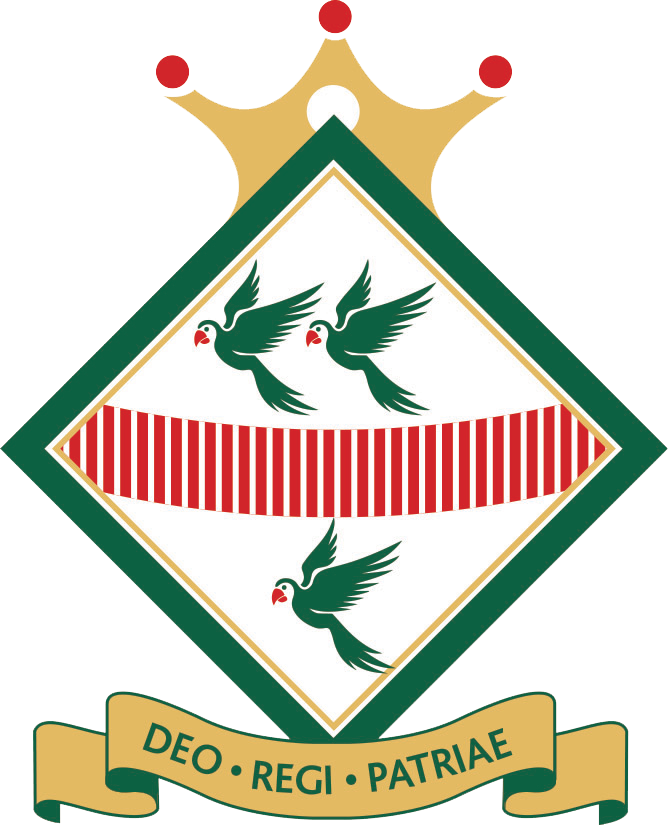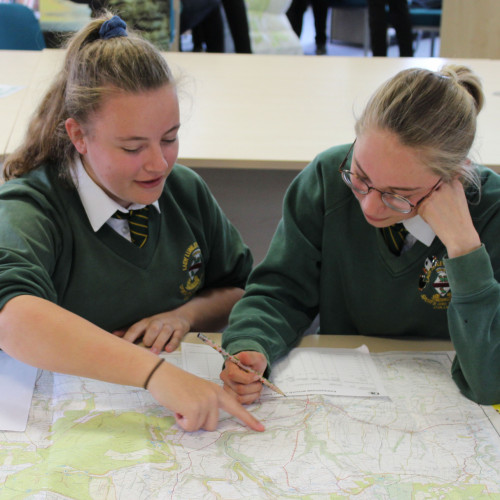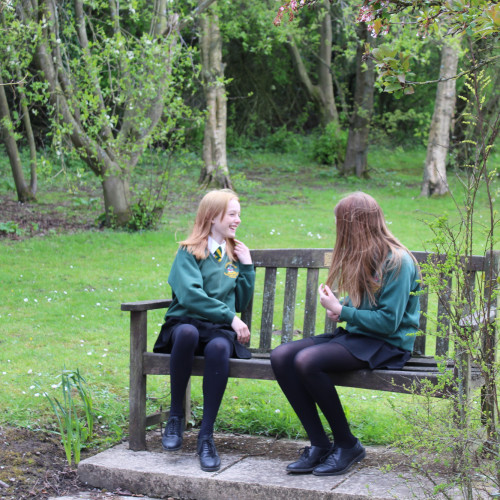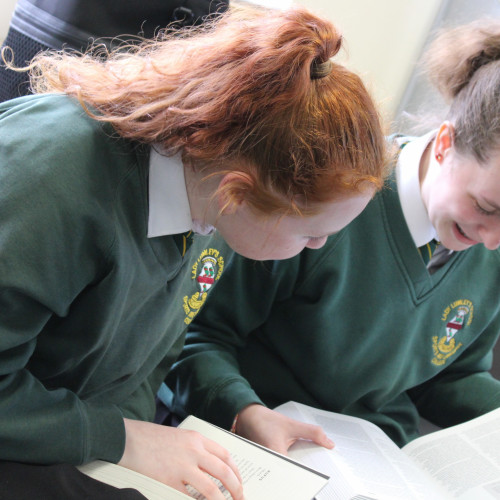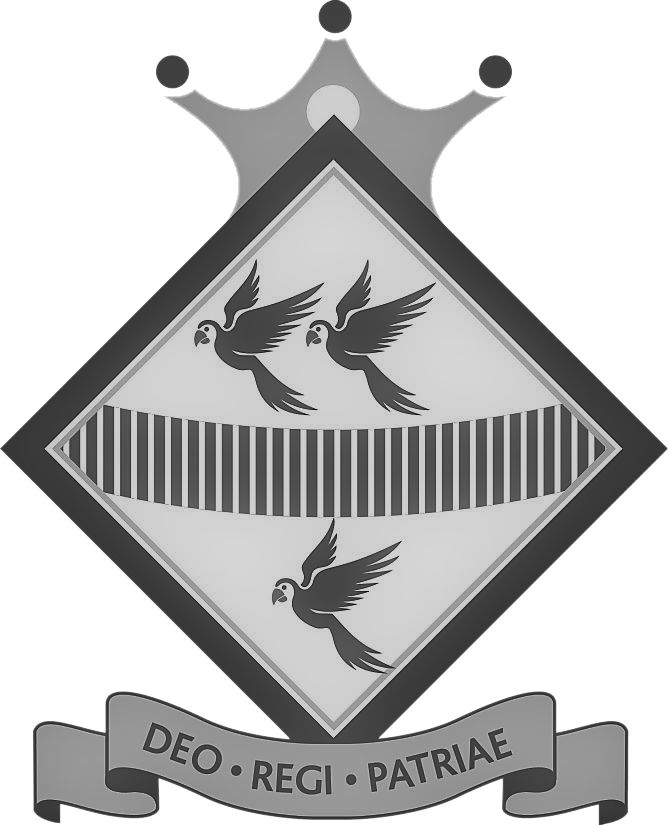History
Key Stage 3
At KS3 students explore a diverse range of topics and time periods. Students develop their source analysis and evaluation skills and further explore the idea of interpretations within history. Effective communication is an integral part of KS3 history and students will be guided in developing their explanations, structuring debate and formulating balanced judgements.
Year 7
In Year 7 history, students explore several key topics to understand how different peoples and events shaped history. They study the success of ancient civilizations, such as Egypt, Greece, and Rome, by examining their achievements in technology, governance, and culture. The Norman Conquest of England in 1066 is analysed to understand how it reshaped English society, law, and language. Beliefs in the Middle Ages played a crucial role in everyday life, with religion influencing politics, social structures, and cultural practices. The religious revolution of the 16th century led to the Reformation and a shift in religious authority in Europe. Students also investigate the reign of Elizabeth I to determine whether it was truly a 'Golden Age' marked by flourishing culture, exploration, and relative stability. Finally, the curriculum explores how Indigenous peoples of the Great Plains in North America adapted their way of life to survive and thrive in challenging environments, particularly through their mastery of the buffalo and adaptation to a nomadic lifestyle.
Year 8
In Year 8 history, students will explore a range of significant events and themes that shaped the modern world. The curriculum begins with an examination of the English Civil War, assessing its impact on the balance of power between monarchy and Parliament. Students will then investigate how Britain emerged as a global superpower, creating the largest empire the world has ever seen through maritime dominance and economic expansion. The course will also address the profound impact of slavery, highlighting the human cost and societal repercussions for those involved. Moving to France, students will analyse the extent of change brought about by the French Revolution, including its effects on different social classes. The Industrial Revolution is explored, prompting discussions about whether its benefits were equally shared among society. Finally, students will examine the challenges of achieving universal suffrage in Britain, considering the social and political barriers that made it difficult for people to gain the right to vote. This comprehensive overview encourages critical thinking about historical events and their lasting legacies.
Year 9
The Year 9 history curriculum explores pivotal events and themes that shaped the 20th century, beginning with World War I and its profound impact on societies. The curriculum then delves into the major turning points of World War II, such as D-Day, highlighting how these events influenced the outcome of the war and the subsequent shift in global power dynamics. Students then examine the extent of Nazi control over Germany, focusing on propaganda, surveillance, and repression that stifled dissent and manipulated public opinion. The discussion of multicultural Britain encourages students to reflect on immigration patterns, cultural diversity, and the evolving national identity. Additionally, the curriculum investigates the changes in the position of Black Americans throughout the 20th century, emphasising civil rights movements and social justice. Finally, the Cold War era is analysed, assessing how 'cold' international relations were between 1945 and 1991, characterized by political tension, ideological conflicts, and the threat of nuclear war.
Enrichment
Students in Year 7 visit Pickering Castle to examine the impact the Normans had on our local landscape.
Useful links
- https://www.bbc.co.uk/teach/class-clips-video/history-ks3-ks4-i-was-there-the-great-war-interviews/zd8p47h
- https://www.bbc.co.uk/bitesize/subjects/z4mqcqt
GCSE History
Edexcel GCSE History encompasses a diverse range of topics that provide insight into significant historical periods and themes.
Paper 1, Thematic study and historic environment
In Medicine in Britain, students explore the evolution of medical practices from the Middle Ages to the modern era, examining key figures and breakthroughs that shaped healthcare. Students will investigate medicine on the Western Front as part of the historic environment.
Paper 2, Period study and British Depth Study
The Early Elizabethan England unit delves into the political, social, and cultural landscape during Queen Elizabeth I's reign, highlighting challenges like the Spanish Armada and the development of the Church of England. In the study of Weimar and Nazi Germany, learners analyse the rise and fall of the Weimar Republic, the impact of World War I, and the emergence of Adolf Hitler and the Nazi regime, focusing on the social and economic factors that contributed to these changes.
Paper 3, Modern Depth Study
The topic of The American West, c1835–c1895 covers the expansion into the western territories, the experiences of Native Americans, the impact of settlers, and the conflicts that arose during this transformative period in American history. Together, these topics provide a comprehensive understanding of key events and transformations that have shaped modern society.
GCSE History Specification:
Enrichment:
Students visit the Thackray Museum of Medicine during Year 10. Study plus is also offered weekly to support learning in Year 11.
Useful Links
- https://www.bbc.co.uk/bitesize/topics/zywk4j6
- https://www.bbc.co.uk/teach/class-clips-video/medicine-through-time/zdcy8xs
- https://www.khanacademy.org/humanities/us-history/postwarera/civil-rights-movement/a/introduction-to-the-civil-rights-movement
- https://www.bbc.co.uk/teach/class-clips-video/history-ks3-ks4-i-was-there-the-great-war-interviews/zd8p47h
A Level History
This course is divided into four topics. There are 3 examined topics and a topic-based essay.
- Topic 1: British period study and enquiry – England 1485-1558: The Early Tudors. This course builds on knowledge gained at GSCE and looks at the Tudor monarchs; Henry VII, Henry VIII and also includes a source-based enquiry on Edward VI and Mary I.
- Topic 2: Non-British period study – Democracy and dictatorships in Germany 1919—1963. This topic looks at the changes in German governance from the end of the First World War to the building of the Berlin Wall. This includes Weimar Germany, the establishment of the Nazi dictatorship and the division of Germany after 1945.
- Topic 3: Thematic study and historical interpretation - Civil Rights in the USA 1865—1992. This is a wide-ranging study of the struggle for civil rights in the US and explores change and continuity for women, Native Americans, African Americans and workers across this period.
- Topic 4: Topic-based essay – this is a 3,000 to 4,000 word essay which students research and write with support from their teachers.
A Level History Specification:
Useful Links
